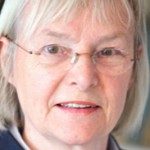Lien vers Pubmed [PMID] – 467802
Dev Biol Stand 1979 ; 42(): 3-10
Myoblasts cultivated in vitro will undergo terminal differentiation to form muscle fibres. Teratoma derived mouse cell lines, a pluripotent primitive line, and a muscle cell line, provide a possibility for comparing RNA populations in an early precursor cell with those in committed myoblasts and differentiated myotubes. Molecular hybridization analyses led to the conclusion that new RNA sequences appear in the cytoplasm during muscle differentiation. Such muscle specific sequences are not detectable in the nuclear RNA of myoblasts or primitive cells. Studies of protein synthesis during terminal myogenesis indicate co-ordinate expression of the muscle contractile proteins. These represent distinct isozymes, distinguishable from the contractile proteins of other cell types. In the case of myosin light chains isozymic transitions between different muscle forms have been identified during early development.
